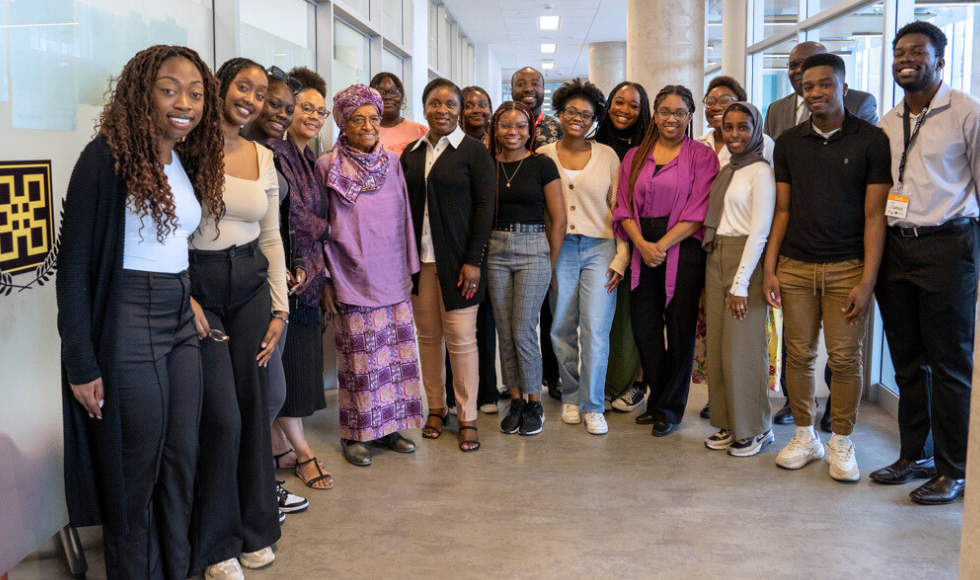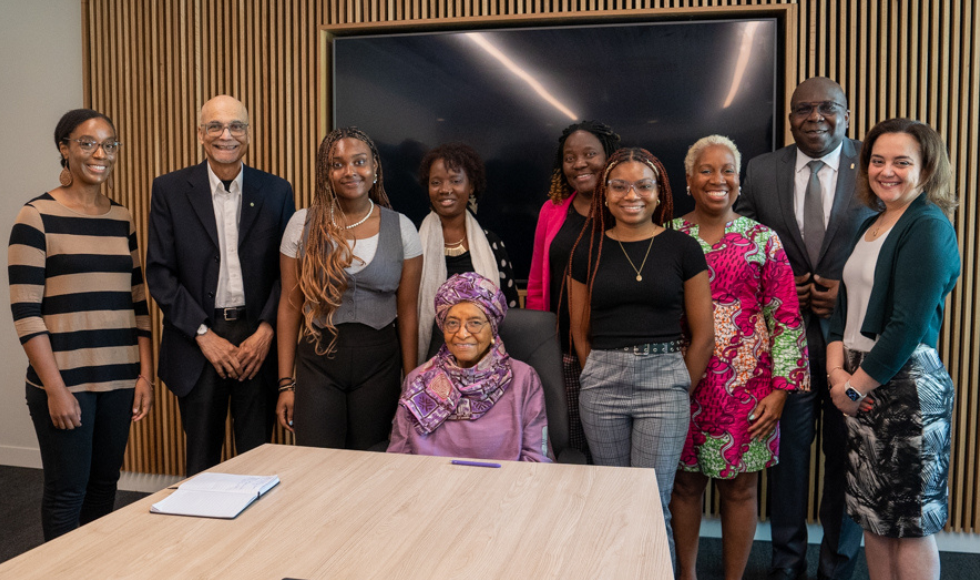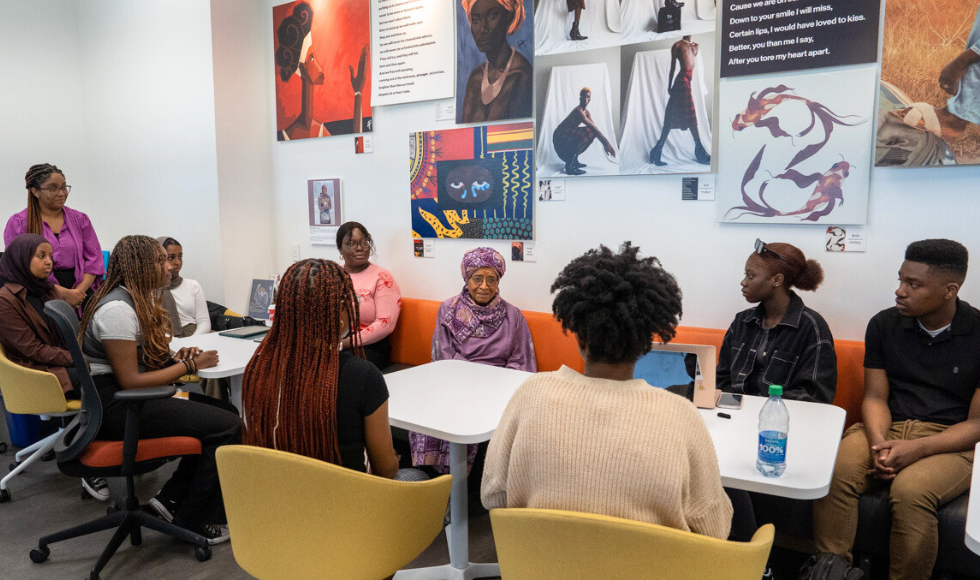‘Carry that spirit to other nations’ — Nobel laureate Ellen Johnson Sirleaf visits McMaster

Ellen Johnson Sirleaf’s story is one of service.
Sirleaf’s remarkable life has been defined by putting others before herself, from her days as an internationally renowned economist to her two terms as president of Liberia.
The “Iron Lady of Africa” was awarded the 2011 Nobel Peace Prize in recognition of her “non-violent struggle for the safety of women and for women’s rights to full participation in peace-building work.”
So when she visited the McMaster campus this week after receiving an honorary doctorate, she had a clear call to action: “Use your talent to make the world a better place.”
The message was heard loud and clear by members of the African-Caribbean Faculty Association of McMaster (ACFAM) as well as students at the Black Student Success Centre, who listened with rapt attention as she shared her hard-won insights into global issues, education and what it’s like to be a woman in the male-dominated halls of power.
Bringing McMaster to the world — and vice versa
Sirleaf’s emphasis on serving the world — not just one community — was fitting, considering her international profile as a champion of human rights and multilateralism. She noted that McMaster is already a global institution, praising the university’s work to engage local Indigenous communities as well as people in the Global South.
“What McMaster has done to reach out beyond Canada broadens the appreciation and knowledge of other nations, peoples and institutions,” she told members of ACFAM and the Office of International Affairs.
“The graduates will leave here, go back home, and carry the spirit that has been developed by being part of the McMaster community. You have the opportunity to carry that spirit to other nations.”

McMaster is already carrying that spirit across borders. Sirleaf listened closely as members of ACFAM described their many achievements, including the MacLEADS program, which offers work-study opportunities in Africa and the Caribbean to students who have historically faced barriers to exchange initiatives.
Looking ahead, they’re planning to turn MacLEADS into a reciprocal program, so that students from partner countries can also study at McMaster.
Sirleaf made it clear that these actions are the key to change: “At the end of the day, for all the talking big personalities do, the real results will come from what you all do at this university.”

Sticking to your principles
After meeting with ACFAM, Sirleaf met with Black members of the McMaster community at the Black Student Success Centre, fielding the young leaders’ thoughtful questions about her work and values. She stressed that it wasn’t enough to merely hold values; you must live by them, as well.
“At the end of the day, you have to lead by example, and you may pay the consequences of standing by your principles,” she said. Sirleaf served stints in prison and in exile earlier in her career. Despite those consequences, facing many failures and doubts, “If I could live it over again, I’d do it the same,” she said.
As for where her values come from, Sirleaf lamented that she had a dearth of women to follow, because their stories were seldom told — but she always looked up to her mother, who was a preacher and a teacher.
“I have three words to sum up the values I learned from my mother: honesty, hard work and humility. That takes me everywhere.”
A connected world, in Hamilton
Those values are also embodied by Leo Johnson, a son of Liberia, McMaster grad and founder of Empowerment Squared. Based in Hamilton, Empowerment Squared works to ensure that newcomers and racialized and marginalized youth have access to professional and educational opportunities.
The organization is building the first public library in Liberia, which Sirleaf strongly supported. Empowerment Squared, along with the Mastercard Foundation (where Sirleaf is a board member), made her visit to Hamilton possible.
The ties between Sirleaf and the university run deep. During her time in Hamilton, she also met with Stephen Lewis, with whom she has worked many times, including their efforts to combat the AIDS crisis and their time on a panel that investigated the Rwandan genocide.
Lewis is a treasured member of the university community: he received an honorary doctorate in 1979, returned in 2006 as the Faculty of Social Sciences’ first scholar-in-residence, and in 2021, donated his archives to the university.
A message of hope
Through her 84 years of setbacks and successes, Sirleaf has remained optimistic. After discussing problems like income inequality, women’s rights and the rise of artificial intelligence, she told ACFAM members, “Let’s remember: It’s still a beautiful world.”
It’s a hopeful message she delivered at convocation, as well.
“To the graduating class of 2023, congratulations over and over again. I can’t wait to see the amazing things that you will accomplish in the years ahead. Remember: in this world of diversity … in this world of change, in an environment of complexities and uncertainties, you are the change.”

